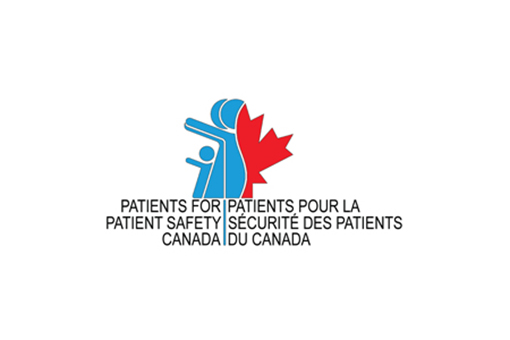Critically delayed cancer diagnosis reveals gaps in healthcare communication processes
October 27, 2016
A terribly delayed diagnosis of her colorectal cancer has robbed Robin McGee of many things in this life, but it has not taken away her capacity for hope. The wind-blown prayer flags tied to the fence behind her Nova Scotia home remind her of that every day.
The clinical psychologist was diagnosed with late-stage colorectal cancer in 2010, a full two years after she'd first gone to a doctor suffering classic symptoms of a cancer that had already shown itself in McGee's family history.
That first doctor told her not to worry, that her rectal bleeding was likely an antibiotic reaction, that there was no need for follow-up. The symptoms went away for a few weeks but then they returned, only worse, and a second doctor also somehow failed to recognize the signals. Weeks passed, then months, and the symptoms progressed in severity as McGee grew increasingly frail and frantic. Over that period, two other doctors also downplayed the symptoms she was exhibiting. All the while, the tumour was ballooning inside her. It took her 661 days to get any diagnostic endoscopy.
Hers is a story about "egregious diagnostic delay," McGee says, a judgement that was subsequently confirmed through an investigation by the College of Physicians and Surgeons of Nova Scotia. Three of those four doctors were disciplined.
Colorectal cancer is like skin cancer, McGee notes. If detected and removed early, the surgery is relatively minor and the patient has an excellent chance of survival. But if it goes to late stages, the survival rate plummets and the treatment required — in her case, chemotherapy, radiation, and two major abdominal surgeries — can be devastating.
"It was devastating on all levels," McGee recalls. "It's devastating to learn you have cancer at all under any circumstances, but to find out you've lost your chance against it cost me so much in terms of my life and my family and everything. All of that was entirely preventable. It was entirely preventable had any one of them done their jobs. One of the things that became clear in the College investigation is that each doctor assumed some other doctor would take responsibility for the case, so in the end, none of them did."
Compounding her anguish and sense of betrayal, McGee was stunned to learn, shortly after her diagnosis, that the best-practice chemotherapy available everywhere else in Canada and the U.S. was not the accepted standard in Nova Scotia. She reached out to her online network and, with the support of family and friends and the province's oncology community, led an eight-month lobbying campaign to have the superior medication made available by the province. That grassroots movement was ultimately successful, although too late for McGee to receive the drugs herself.
"Since then, I'm happy to say that over 500 Nova Scotians have had access to that best chance at cure since the days of our advocacy, and I've had the privilege of meeting some of them," McGee says. "They come up to me in the street and say, 'If it weren't for you, who knows whether I'd even be here."
McGee's sister is a Buddhist, and at one point in the long, painful cancer struggle she gave McGee some Buddhist prayer flags to tie to the backyard fence behind her Port Williams home.
"The flags eventually got quite tattered in the wind, but they have many times been a source of strength and a source of solace," McGee says. "When at one point the government phoned me to say, 'We're refusing to allow you to have this medication you're lobbying for,' and I went to the window and pressed my head against the cold glass and looked out, there were the prayer flags blowing towards me. I thought, I need those prayers; really, I need those prayers right now." McGee thought of those flags again on the day she learned from her doctors that evidence showing her cancer had metastasized to an inoperable location had somehow disappeared on post-treatment scans. Five years from the day of her last treatment, when McGee knew she was a cancer survivor, she went out and replaced those tattered flags with new ones.
McGee remains in remission today, but continues to devote much of her time to patient advocacy, helping Cancer Care Nova Scotia on several working groups aimed at improving standards of treatment and patient engagement. Most importantly to her, she has served on an expert working group aimed at developing guidelines for family physicians regarding the detection and diagnosis of colorectal cancer.
"I think there's a tendency among doctors to think that the harmed patient cannot be their ally, that we're all so emotional, we have axes to grind and we can't possibly contribute in a thoughtful way to a resolution of health care problems," McGee says. "But I can say from my own experience that it is possible to do that. It is possible for even the most harmed person to sit down and discuss things, dispassionately, sensitively, going over the research literature, whatever, to take health care in the direction it needs to go. I think doctors are often very afraid of patients at all in terms of patient engagement, but particularly afraid of harmed patients, but they don't need to be because we're people who have the passion to make it different."

Want to read more?
